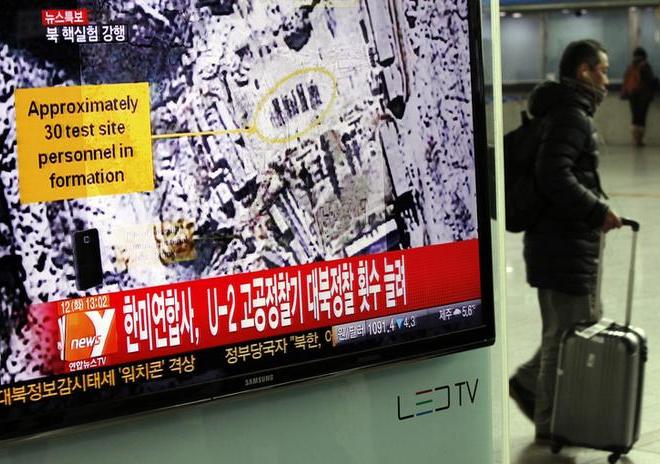
BY WILLA FREJ:
China has historically avoided engaging in any type of hawkish behavior towards North Korea. The growing Eastern power cites history, culture, and border stability as reasons to cut Pyongyang some slack. Despite this trend, China decided on January 22 to sign UN Security Council Resolution 2087, which called for tightening of sanctions on North Korea in reaction to the country’s rocket launch in December. This move was quite a surprise – and a particularly pleasant surprise for Washington. In the escalating scramble to keep North Korea free of nuclear weapons, China holds a covetable bargaining chip as North Korea’s only trading partner and primary ally.
North Korea has begun aggressively profiling its nuclear behavior and on February 12 detonated its third nuclear device. Pyongyang also just announced to the Chinese its plan to stage two more nuclear tests. Looking to maintain respectful relations with North Korea, Kim Jong-un’s government claims that these continued tests are in reaction to, and therefore the fault of, U.S. hostility.

While it seems unlikely that China will entirely upend a long-standing alliance, its growing frustration with its neighbor to the south is a notable development. The Chinese press, in an unusual rebuke of North Korea, scorned Pyongyang’s ungrateful reaction to the Chinese attempt to lessen the severity of the UN sanctions. However, China’s impatience has yet to materialize into direct action towards North Korean leadership.
China’s regional foreign policy has long been predicated on stability; what have changed are the emerging threats to this stability. An alliance with North Korea once guaranteed a minimization of refugee flows into southern China as well as a strategic buffer against American activity on the Korean Peninsula. Now, China will need to decide whether the threat of a nuclear arsenal in the hands of a rogue state outweighs the eventuality of unrest and an encroaching U.S. military presence in the region.
Options on the table for China are limited. In trying to balance the roles of ally and aggressor, Beijing could attempt to slow down North Korea’s nuclear program by threatening to curtail Chinese oil and investment contracts. Additionally, debates within Chinese foreign policy circles have revolved around cooperation with the United States, although many are staunchly opposed to any drastic policy measures that will jeopardize amicable ties with the Kim dynasty. Much of what Beijing’s next move here will be depends on the character of China’s new leader, Xi Jinping.
Trapped between wanting to maintain the status quo of regional stability and a genuine desire to curb North Korea’s accession of nuclear weapons, China faces some game-changing foreign policy decisions in the coming months. But the international community shouldn’t hold its breath; a drastic shift in Chinese attitude continues to be unlikely. For now, the question is how much North Korea values its kinship with the People’s Republic of China, and how much it will be willing to budge in the face of Chinese impatience.
Willa Frej ’13 is in Pierson College. She writes about China’s foreign policy as she works on her senior essay discussing the topic. Contact her at willa.frej@yale.edu.